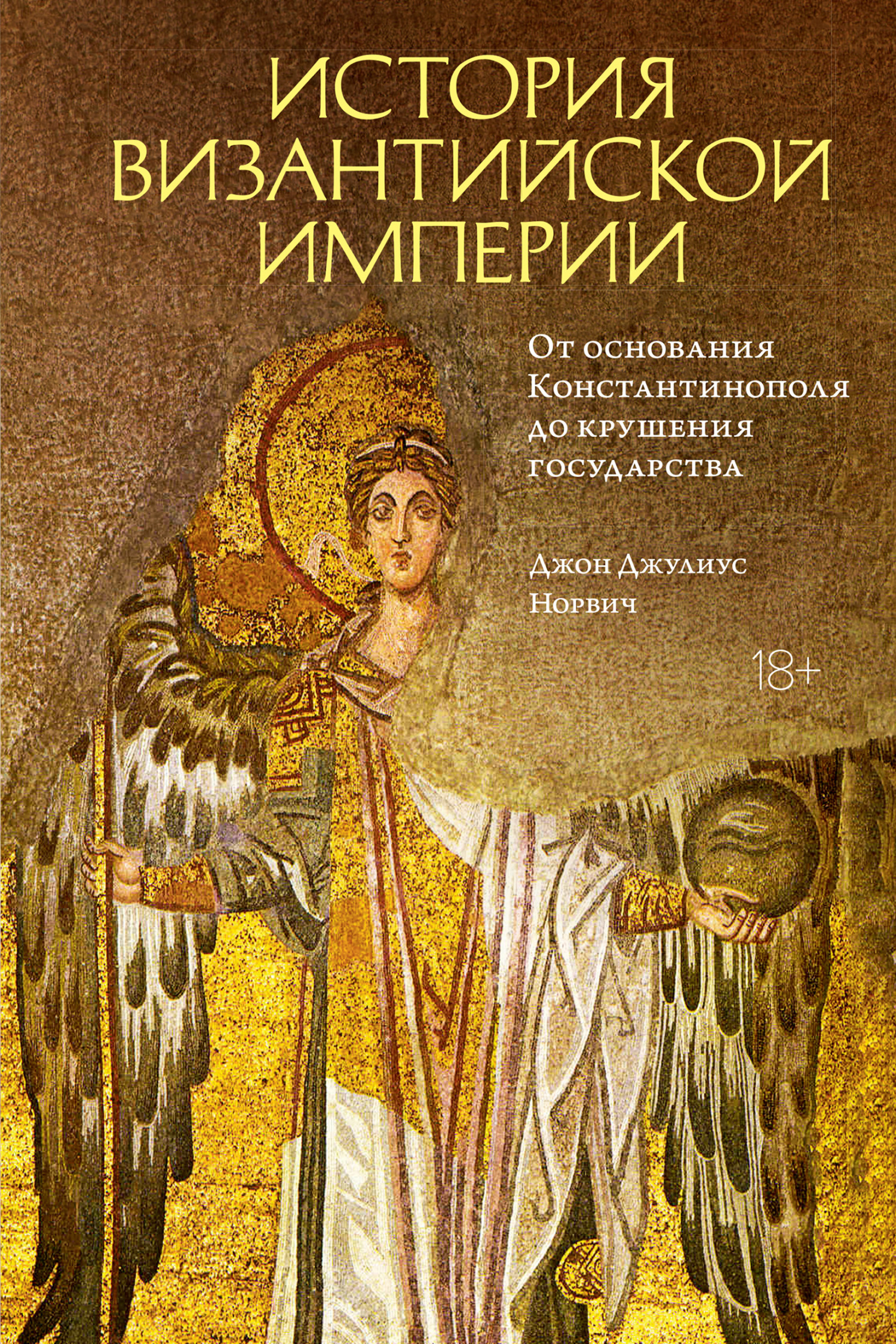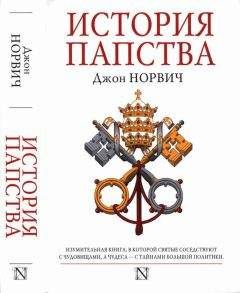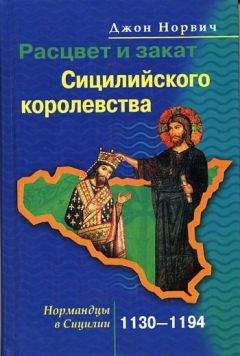Oxford, 1957.
_____. The Byzantine Family of Kantakouzenos [Cantacuzenus] ca. 1100–1460. A genealogical and prosopographical study. Dumbarton Oaks Studies, 11. Washington, DC, 1968.
_____. The Byzantine Reaction to the Second Council of Lyons, 1274 // S. C. H. Vol. 7. 1971.
_____. The Last Centuries of Byzantium, 1261–1453. London, 1972.
_____. The Immortal Emperor. Cambridge, 1992.
Norwich J. J. The Normans in the South. London, 1967.
_____. The Kingdom in the Sun. London, 1970.
_____. A History of Venice: Vol. I, The Rise to Empire. London, 1977.
_____. A History of Venice: Vol. II, The Greatness and the Fall. London, 1981.
_____. Byzantium: The Early Centuries (330–800). London, 1988.
_____. Byzantium: The Apogee (800–1081). London, 1991.
_____. Byzantium: The Decline and Fall (1081–1453). London, 1995.
Obolensky D. The Bogomils. Oxford, 1948.
_____. The Byzantine Commonwealth. London, 1971.
Ockley S. History of the Saracens. 4th edn. London, 1847.
Oikonomides N. Leo VI and the Narthex Mosaic at St Sophia // Dumbarton Oaks Papers, Vol. 30. 1976.
Oman C. W. C. The Byzantine Empire. London, 1897.
Ostrogorsky G. History of the Byzantine State. Trans. J. Hussey. Oxford, 1968.
Oxford Dictionary of Byzantium. Ed. A. P. Kazhdan et al. 3 vols. Oxford and New York, 1991.
Perowne S. The End of the Roman World. London, 1966.
Rambaud A. L’Empire Grec au Dixième Siècle: Constantin Porphyrogénete. Paris, 1870.
Ramsay Sir William. The Historical Geography of Asia Minor. Royal Geographical Society, Supplementary Papers. Vol. 4. London, 1890.
Ridley F. A. Julian the Apostate and the Rise of Christianity. London, 1937.
Rowe J. G. Paschal II, Bohemund of Antioch and the Byzantine Empire. Bulletin of the John Rylands Library. Vol. 49 (1966–1967). P. 165–202.
Runciman Sir Steven. A History of the First Bulgarian Empire. London, 1930.
_____. The Medieval Manichee. Cambridge, 1946.
_____. A History of the Crusades. 3 vols. Cambridge, 1954.
_____. The Eastern Schism: A Study of the Papacy and the Eastern Churches during the 11th and 12th Centuries. Oxford, 1955.
_____. The Sicilian Vespers. Cambridge, 1958.
_____. The Emperor Romanus Lecapenus and his Reign. Cambridge, 1963.
_____. The Great Church in Captivity. Cambridge, 1968.
_____. Mistra: Byzantine Capital of the Peloponnese. London, 1980.
Schlumberger G. Un Empereur Byzantin au Dixième Siècle: Nicéphore Phocas. Paris, 1890.
_____. L’Epopée Byzantine à la fin du Dixième Siècle. Vol. I. Paris, 1896.
_____. Expédition des Almugavares ou routiers catalans en orient de l’an 1302 à l’an 1311. Paris, 1902.
_____. Le siége, la prise et le sac de Constantinople en 1453. Paris, 1926.
Segal J. B. Edessa, ‘The Blessed City’. Oxford, 1970.
Setton K. M. Catalan Domination of Athens, 1311–1388. Cambridge, Mass., 1948.
_____. The Byzantine Background to the Italian Renaissance. Proceedings of the American Philosophical Society, Vol. 100, no. 1 (February 1956).
Setton K. M. (Editor-in-chief). A History of the Crusades. 2 vols. University of Wisconsin Press, Madison, Milwaukee and London, 1969.
Skoulatos B. Les Personages Byzantins de l’Alexiade. Louvain, 1980.
Smith J. H. Constantine the Great. London, 1971.
Smith W. and Wace H. Dictionary of Christian Biography. 4 vols. London, 1877–1887.
Stein E. Histoire du Bas-Empire, II: de la Disparition de l’Empire de l’Occident à la Mort de Justinien (476–565). Paris and Brussels, 1949.
Sumner-Boyd H. and Freely J. Strolling through Istanbul. Istanbul, 1972.
Swift E. A. Hagia Sophia. New York, 1940.
Sykes Sir Percy. A History of Persia. 2 vols. 3rd edn. London, 1930.
Taylor J. Imperial Istanbul: Iznik – Bursa – Edirne. London, 1989.
Temperley H. W. V. History of Serbia. London, 1919.
Thompson E. A. A History of Attila and the Huns. London, 1948.
Toynbee A. Constantine Porphyrogenitus and his World. London, 1973.
Van Der Meer F. Atlas of Western Civilisation. Trans. T. A. Birrell. Amsterdam, 1954.
Van Der Meer F. and Mohrmann C. Atlas of the Early Christian World. Trans. M. F. Hedlund and H. H. Rowley. London, 1958.
Vasiliev A. A. Manuel Comnenus and Henry Plantagenet. B. Z. Vol. 29. 1929–1930. P. 238–244.
_____. Byzance et les Arabes. Fr. edn. prepared by H. Grégoire and M. Canard. Vol. 1: La Dynastie d’Amorium, 820–867. Brussels, 1935.
_____. Vol. II: La Dynastie Macédonienne, 867–959. Brussels, 1950.
_____. The Goths in the Crimea. Cambridge, Mass., 1936.
_____. Justin the First: an Introduction to the Epoch of Justinian the Great. Cambridge, Mass., 1950.
_____. History of the Byzantine Empire, 324–1453. Madison, Wisconsin, 1952.
Vogt A. Basile Ier et la Civilisation Byzantine à la Fin du Onzième Siècle. Paris, 1908.
_____. La Jeunesse de Léon VI le Sage // Revue Historique, Vol. CLXXIV. 1934.
Vogt J. The Decline of Rome: The Metamorphosis of Ancient Civilisation. Trans. J. Sondheimer. London, 1967.
Vryonis S. Byzantium and Europe. London, 1967.
_____. The Decline of Medieval Hellenism in Asia Minor and the Process of Islamization from the Seventh through the Fifteenth Century. Los Angeles, 1971.
West R. Black Lamb and Grey Falcon. 2 vols. London, 1944.
Wheler Bush R. St Athanasias: His Life and Times. London, 1888.
Zakynthos D. Le Despotat grec De Morée, 1262–1460. Vol. 1. Paris, 1932.
Ziegler P. The Black Death. London, 1969.
«Четыре тетрарха», скульптурная композиция, изображающая, как считается, обнимающих друг друга тетрархов Диоклетиана. Изготовлена из порфира в IV в. в Константинополе и встроена в юго-западный угол базилики Сан-Марко в Венеции
Бюст гигантской статуи Константина – вероятно, часть более раннего памятника императору, размещавшегося в базилике Максенция и Константина в Риме
Бюст Аркадия, найденный на форуме Феодосия (Бычьем форуме) в Константинополе. Взгляд, направленный вверх, к Богу, символизирует благочестие
Серебряный медальон из Тицинума (совр. Павии), датируемый 315 г. На императоре Константине I (слева) шлем с христограммой (XP)
Валентиниан I. Изображение из книги Аммиана Марцеллина
Египетский обелиск XV в. до н. э., поставленный Феодосием I приблизительно в 390 г. н. э. на константинопольском Ипподроме
Пьедестал обелиска, северная сторона. Император Феодосий I восседает в императорской ложе на Ипподроме, по бокам от него стоят его соправители и охрана. Внизу изображены варвары, подносящие дань













